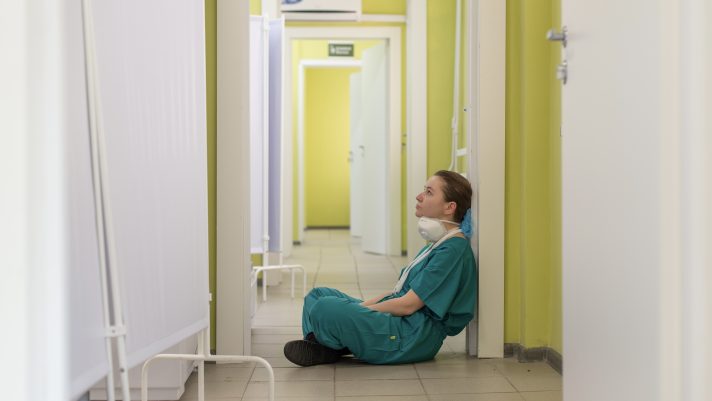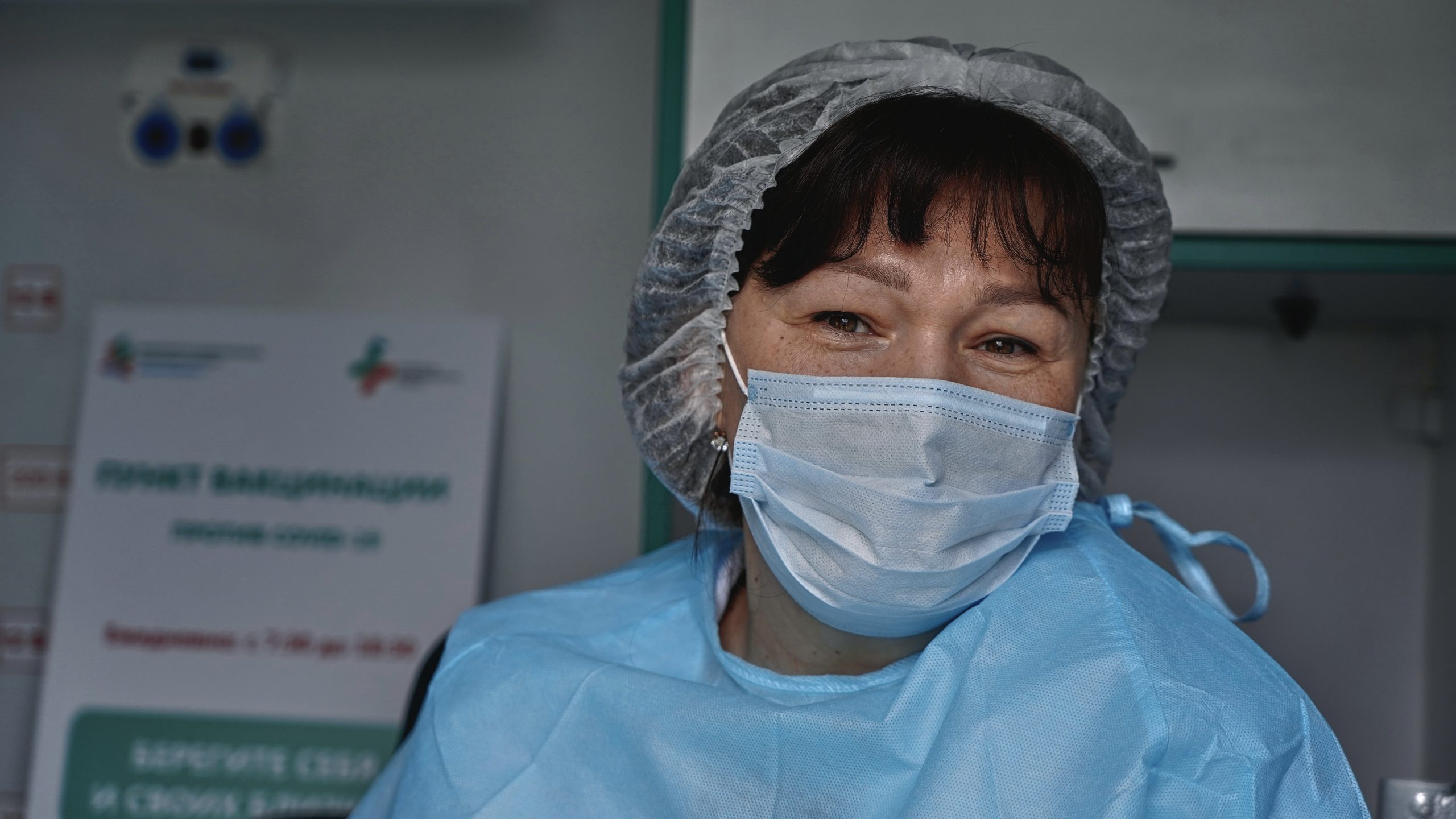Last year, in an effort to support medical providers and first responders on the brink of burnout, we launched Heal the Healers Now.
More recently, Hadley Barndollar of the Providence Journal spoke with Dr. Tony Nader – a medical doctor and head of the international Transcendental Meditation organization – about this initiative to provide meditation to those battling the COVID-19 pandemic, and the profound benefits of regular TM practice.
The following is an excerpt from that article, which was originally published on www.providencejournal.com.
________________________________________________________________________
Dr. Brad Collins was among those who held up iPads as dying COVID-19 patients said their final goodbyes to loved ones.
On the few days he had off, he slept. He was struggling. And ironically, he was in charge of mindfulness resources for his coworkers also on the COVID frontlines.
“It was really traumatic, and I don’t think most of us realized that until we started to see the vaccine come out,” said Collins, who works at Miriam Hospital in Providence, Rhode Island.
The dark days of COVID-19 have pressed on, but Collins is doing much better now, thanks to a new coping mechanism. He learned Transcendental Meditation.
Five New England hospitals are hosting the national “Heal the Healers Now” program with the help of a $2 million grant to bring Transcendental Meditation to doctors, nurses and other medical professionals who’ve experienced magnified stress, trauma and burnout during the COVID-19 pandemic.
[…]
“Spending the 20 minutes twice a day in Transcendental Meditation really sort of helps to center yourself,” Collins said. “I liken it to a bucket that seems to be overflowing all the time, and Transcendental Meditation sort of helps you empty that bucket so it’s not always spilling over.”
Healthcare workers are experiencing COVID burnout. So why meditation?
A national survey published in May featuring more than 20,000 health care workers revealed that nearly half were experiencing burnout, and 38% were suffering from anxiety and depression. The survey found stress scores highest among nursing assistants, medical assistants and social workers, as well as Black and Latino/Latina employees.
The U.S. Department of Health and Human Services recently pledged $100 million to address the nationwide staffing shortages that are leaving the remaining health care workers exhausted.
[…]
How can Transcendental Meditation help?
Transcendental Meditation has been hailed by celebrities Ellen Degeneres and Tom Brady, as well as war veterans dealing with PTSD. It has documented benefits for stress and anxiety, brain function and cardiovascular health, and the technique has been studied by the Harvard School of Medicine, National Institutes of Health, U.S. Department of Defense, American Heart Association and American Medical Association.
“It’s a moment of joy, really, a moment of relief,” Nader said. “A moment from getting away from the stressors and the problems.”
Preliminary findings from trials at Brigham and Women’s Hospital, Duke University Medical Center and three hospitals in Miami, Florida showed marked reductions in anxiety and burnout for doctors and nurses. From there, other hospitals started requesting it, Nader said.
The Transcendental Meditation nonprofit describes the practice as “allowing your active mind to easily settle inward, through quieter levels of thought, until you experience the most silent and peaceful level of your own awareness — pure consciousness.”
In its simplest form, Nader said, Transcendental Meditation is sitting in a chair and closing the eyes, allowing yourself to naturally follow the mind’s course. It requires very little effort, he said, and can be done in 15-20 minutes per day.
There’s “absolutely no prerequisite,” said Nader, and it’s likely the people who say “meditation is not for me” are the ones who might benefit from it the most.
“If you’re the kind that says, ‘I can’t get my mind to settle for a minute, my mind is rushing all the time,’ then meditation is absolutely for you,” he said.
Miriam Hospital now has 5-6 rooms dedicated to employee meditation at any given time, said Collins, and the technique is being talked about among staff – creating a new culture of attention to self care.
First, bedside nurses were trained, and then the hospital opened up opportunities for other staffers.
“I’ve definitely slept better, I feel more engaged,” Collins said. “I feel more ready to be able to do both work and home things that need to be done. My disposition has been much better in terms of being able to deal with stressors when they come up. And it was noticeable within the first couple of sessions.”
Collins knows meditation isn’t a cure-all for the many hurdles health care workers face right now, but he recommends it widely as a way to ease the burden.
“It’s unbelievable, and it sounds so silly,” he said. “You just make the time and it really is so simple.”
Click here to read the whole piece from Providence Journal, or find a local TM teacher at www.TM.org.






